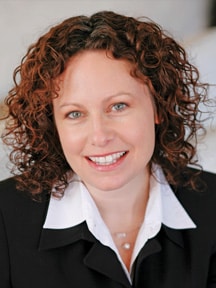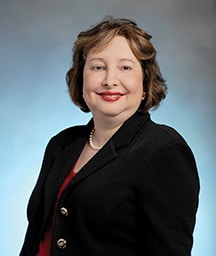ALONE – WHETHER PLANNED OR UNEXPECTED – IS MANAGEABLE IF SUPPORT IS IN PLACE
STORY BY Julekha Dash PHOTOGRAPH BY André Chung
Dora Stidham had just moved to Maryland and was building her dream house at Turf Valley in Ellicott City. Her husband Paul Stidham, who had suffered two job losses in Pennsylvania and New Jersey, had just accepted a management position in the environmental safety division of W.R . Grace & Co. But eight months after the couple and their daughters, then ages 7 and 12, moved to Maryland, Paul died in a commuter plane crash in Charlotte, N.C. “I wasn’t just left without a husband, I was left in a different state by myself,” says the stay-at-home mother who now lives in Dayton. “Sometimes I couldn’t even breathe. I was losing my mind. But I took it one day at a time.”
. Grace & Co. But eight months after the couple and their daughters, then ages 7 and 12, moved to Maryland, Paul died in a commuter plane crash in Charlotte, N.C. “I wasn’t just left without a husband, I was left in a different state by myself,” says the stay-at-home mother who now lives in Dayton. “Sometimes I couldn’t even breathe. I was losing my mind. But I took it one day at a time.”
Stidham was also left unprepared to handle many tasks on her own – from changing a light bulb to paying the bills after her husband died in 2003. “I couldn’t even hang up a picture. I had to learn the hard way. It was swim or sink.” She isn’t the only one. More than 17 million U.S. women live alone whether by accident, like Stidham, because of divorce or by choice.
The Pew Research Center recently reported that 40 percent of households with children younger than 18 are headed by a woman – either a single mother or a married woman who is the primary breadwinner for the family. This figure has increased dramatically from just under 11 percent in 1960. Financial experts, attorneys and suddenly single women say women need to be prepared for the possibility that they may live without a partner. Knowing how much money is in your bank account and 401k and keeping your professional skills up to date – even if you are a stay-at-home mom – are crucial. Just as important is preparing yourself emotionally by getting support from friends, neighbors, family and other women in the same predicament.
“Having friends is your lifeline. You really need mental support,” says twicedivorced Odenton resident Joan Athen. Indeed, says Gayle Siegel, who manages Siegel Law, a family law practice in Ellicott City, where her husband, Harry, is the principle attorney, in the midst of a divorce “you can be paralyzed and not see things objectively.” It’s a traumatic event she says, that often takes women by surprise. “It’s not like you’re planning a trip to Italy and you can do your research and plan everything before you go.” And even when the break initially appears amicable, says Siegel, it doesn’t always continue down that path. “Once you start arguing about money and kids, things can get ugly,” she says. Attorneys can help you keep your objectivity, she says, as does mediation. “Mediation works because everything is right on the table in front of you. None of this back and forth with attorneys and phone calls, all this he-said-she-said.” Sometimes women see the split coming and can prepare for it. Though this may not be as joyous an undertaking as planning a trip to Italy, it can nevertheless help in the long run.
During her 20 years as a financial planner, Vanessa Duchman has seen plenty of women shun a meeting with her to discuss money management. She would often meet with the husband alone to discuss taxes, retirement planning and stock options. But ignorance isn’t bliss when it comes to finances, especially if you are confronting a divorce. Being unprepared leaves women reeling at a time when they are already under duress, says Duchman who started the Next Chapter, a Howard County support group for divorcing women. “They should be on top of everything financial and participate in it.” Duchman advises keeping a list of marital and nonmarital assets and taking an inventory of what you and your spouse each brought into the marriage and what you accumulated together. Know exactly how much money is in your bank accounts, retirement accounts, 401k, Social Security statements, individual retirement accounts and brokerage accounts. You should also know the value of any real estate you own. Even things like country club memberships and frequent flier miles are assets that can get divided up during a divorce. If you and your spouse have held joint credit card accounts, you will need to build up your personal credit history. Maintain a credit card in your name alone, charge something every month and make sure you pay it on time, Duchman says. Estate attorney Diane Kotkin reminds women to change the beneficiaries following a divorce or the death of a spouse. That way, the money from your individual retirement account, life insurance, annuities, U.S. treasury bonds and other accounts don’t go to your ex – or your deceased spouse – in the case of your death, says Kotkin, an estate attorney at Offit Kurman, which has an office in Maple Lawn.
Be professionally prepared
If you have been out of the work force for a while and are financially dependent on your husband, don’t rush into a divorce. Once Lynne McCabe realized her marriage wasn’t going to work out, she came up with a plan on how she could earn enough money to support herself and get her two kids through college. And it took her 15 years to work through the plan. McCabe finished her college degree in accounting, taking online courses at the University of Maryland University College all while raising her kids in Ellicott City while her husband frequently traveled for work. “Going through a separation is awfully draining,” says Joan Athen, an executive district manager with Arbonne International. She is the past president of the Howard County Chamber of Commerce and the former chair of the Howard Community College board of trustees. “A woman needs to think ahead. You no longer have two people paying your bills. It’s just you.” Athen recommends taking everything into account before planning any major changes. After all, she says, “being able to give your children the things that they need is quite a challenge.” Before Athen divorced the first time around in 1980, she operated a video game and vending machine company while keeping her day job in ad sales. It was one of four companies Athen, now in her 60s, has started and sold during her career. Family law attorney Fred Silverstein advises that even women who are stay-at-home moms should keep their skills up to date. Even if you are in a solid marriage, a partner might become ill or be laid off. And in the case of divorce, though many women receive alimony, it’s generally for a limited time, with the expectation that you will eventually re-enter the work force. “You have to be prepared for the death of your loved one or a breakup,” says Silverstein, a partner at Silverstein & Ostovitz in Ellicott City. “You cannot rely on whoever it is you’re marrying to support you forever and ever just because they tell you, ‘I’m going to support you forever.’ Life doesn’t always work out that way.”
Be a joiner
Many women contemplating divorce are reluctant to take the first step because they are afraid of the unknown. To get over that fear, it helps to mee
Strategy session on finding yourself suddenly single. Experts give tips on facing the challenge.





